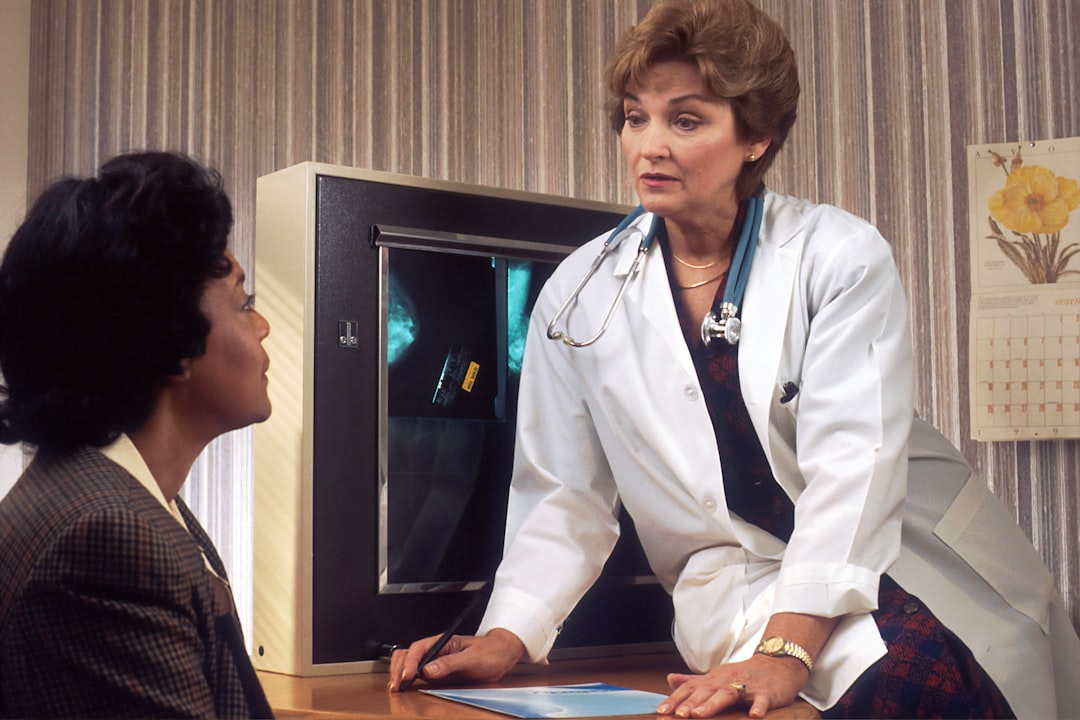

Healthcare regulations play a crucial role in ensuring that the quality of healthcare services provided to patients is maintained at a high standard. These regulations are put in place to protect the health and well-being of individuals by setting guidelines and standards that healthcare providers must adhere to.
One of the main reasons why healthcare regulations are important is because they help prevent medical errors and malpractice. By enforcing strict rules and protocols, healthcare professionals are held accountable for their actions, which ultimately leads to better patient outcomes.
Additionally, healthcare regulations also help safeguard patient confidentiality and privacy. With strict guidelines on how patient information is handled and shared, individuals can trust that their personal health information will remain secure and protected.
Furthermore, healthcare regulations promote transparency within the healthcare industry. By requiring providers to disclose information about their practices and outcomes, patients are able to make informed decisions about their care.
Overall, the importance of healthcare regulations cannot be understated. They serve as a framework for ensuring that patients receive safe, effective, and high-quality care while also upholding ethical standards within the industry. Without these regulations in place, there would be chaos and uncertainty in the healthcare system, putting patients at risk of harm. Thus, it is imperative that we continue to uphold and enforce these regulations to promote the well-being of all individuals involved in the healthcare process.
The current healthcare regulatory framework is a complex and dynamic system that governs the practice of medicine and delivery of healthcare services. It encompasses laws, regulations, guidelines, and standards that aim to ensure the quality, safety, and efficiency of healthcare services.
At the federal level, agencies such as the Centers for Medicare & Medicaid Services (CMS), the Food and Drug Administration (FDA), and the Department of Health and Human Services (HHS) play key roles in regulating healthcare. These agencies are responsible for enforcing laws such as the Affordable Care Act, HIPAA, and the Food, Drug, and Cosmetic Act.
State governments also have a significant role in healthcare regulation. They oversee areas such as licensing of healthcare providers, accreditation of healthcare facilities, and enforcement of state-specific health laws.
In addition to government agencies, professional organizations like the American Medical Association (AMA) and The Joint Commission set standards for clinical practice and quality improvement in healthcare.
Overall, the healthcare regulatory framework is essential for protecting patients, ensuring accountability among healthcare providers, promoting innovation in medical treatments, and improving overall health outcomes. Adherence to these regulations is crucial for maintaining a safe and effective healthcare system that meets the needs of patients and communities.

A medical malpractice lawyer is a legal professional who specializes in handling cases where healthcare providers have caused harm or injury to their patients due to negligence or substandard care.. These attorneys have a deep understanding of medical laws and regulations, as well as the complex nature of healthcare practices. When someone believes they have been a victim of medical malpractice, they can seek out the expertise of a medical malpractice lawyer to help them navigate the legal process.
Posted by on 2024-10-11

To become a successful medical malpractice lawyer, one must possess a unique set of qualifications that not only demonstrate expertise in the legal field but also showcase a deep understanding of the complexities involved in healthcare practices. First and foremost, aspiring medical malpractice lawyers must obtain a Juris Doctor (J.D.) degree from an accredited law school.. This foundational education provides individuals with the necessary knowledge and skills to navigate the legal system and advocate on behalf of their clients effectively. In addition to obtaining a law degree, individuals looking to specialize in medical malpractice law should consider pursuing additional education or training in healthcare-related fields.
Posted by on 2024-10-11

Medical malpractice lawyers specialize in cases where healthcare professionals, such as doctors, nurses, and hospitals, have failed to provide a standard level of care which has resulted in harm or injury to a patient.. These types of cases can range from misdiagnosis or delayed diagnosis of a medical condition, surgical errors, medication errors, birth injuries, and even wrongful death. One common type of case that medical malpractice lawyers handle is misdiagnosis or delayed diagnosis.
Posted by on 2024-10-11

When you are facing a medical malpractice case, hiring the right lawyer is crucial to ensuring that you receive the justice and compensation you deserve.. With so many lawyers out there claiming to specialize in medical malpractice, it can be overwhelming to know who to trust with your case.
Posted by on 2024-10-11
Non-compliance with healthcare regulations can have a significant impact on the quality of patient care and overall healthcare system. When healthcare providers fail to comply with regulations set by governing bodies, it can put patients at risk for receiving substandard care, resulting in negative health outcomes.
One of the most concerning impacts of non-compliance is the potential harm to patients. Regulations are put in place to ensure that healthcare facilities and providers maintain a certain standard of care that prioritizes patient safety and well-being. When these regulations are not followed, patients may be subjected to unnecessary risks, medical errors, or even harm due to negligence or incompetence.
Additionally, non-compliance with healthcare regulations can also lead to financial repercussions for both providers and healthcare organizations. Violations of regulations can result in fines, legal fees, loss of accreditation, and damage to reputation. These financial burdens can ultimately affect the ability of facilities to continue providing quality care and services to their patients.
Furthermore, non-compliance with regulations can undermine public trust in the healthcare system as a whole. Patients rely on regulatory bodies to ensure that they receive safe and effective care from qualified professionals. When these regulations are not enforced or followed, it can erode confidence in the integrity of the healthcare system and deter individuals from seeking necessary medical treatment.
In conclusion, the impact of non-compliance with healthcare regulations is far-reaching and detrimental to both patients and the healthcare system as a whole. It is essential for all healthcare providers and organizations to adhere to regulatory standards in order to uphold patient safety, maintain financial stability, and preserve public trust in the delivery of quality healthcare services.

Implementing and enforcing healthcare regulations can be quite challenging for a variety of reasons. One of the main challenges is the sheer complexity and volume of regulations that exist in the healthcare industry. With so many rules to follow, it can be difficult for healthcare providers to stay compliant at all times.
Another challenge is the ever-changing nature of healthcare regulations. Laws and guidelines are constantly being updated and revised, which can make it hard for providers to keep up with the latest requirements. This dynamic environment can lead to confusion and errors in compliance.
Additionally, enforcement of healthcare regulations can be a daunting task. Regulators must ensure that providers are following the rules, but this process can be time-consuming and resource-intensive. Limited resources may hinder regulators' ability to effectively monitor compliance across all healthcare facilities.
Furthermore, differing interpretations of regulations can also pose a challenge in implementation and enforcement. What one provider sees as compliant may not align with another's interpretation, leading to inconsistencies in regulation adherence.
Overall, the challenges in implementing and enforcing healthcare regulations highlight the need for effective communication, education, and collaboration between regulators and providers. By working together to address these obstacles, we can strive towards a more streamlined and efficient regulatory system that ultimately benefits both patients and healthcare professionals alike.
Healthcare regulations play a crucial role in ensuring that patients receive safe and effective care. However, healthcare providers often struggle to comply with these regulations due to their complexity and constantly changing nature. To improve healthcare regulation compliance, it is essential to implement the following recommendations:
Enhance education and training: Healthcare providers should receive comprehensive education and training on healthcare regulations to ensure they have a clear understanding of their requirements. This can help prevent unintentional violations and promote a culture of compliance within the organization.
Simplify regulations: Regulatory bodies should work towards simplifying healthcare regulations by eliminating redundancies and reducing ambiguity. Clear and concise regulations make it easier for healthcare providers to understand and adhere to them.
Provide resources and support: Healthcare organizations should invest in resources such as compliance officers, technology tools, and training programs to support staff in meeting regulatory requirements. These resources can help streamline compliance processes and reduce the risk of non-compliance.
Foster collaboration: Collaboration between regulatory bodies, healthcare providers, and industry stakeholders is essential for addressing regulatory challenges effectively. By working together, stakeholders can identify common issues, share best practices, and develop solutions that promote better compliance across the healthcare sector.
Implement regular audits and monitoring: Regular audits and monitoring of healthcare practices can help identify potential areas of non-compliance before they escalate into serious violations. By conducting thorough assessments, organizations can proactively address issues and take corrective action to ensure compliance with regulations.
By implementing these recommendations, healthcare organizations can enhance their ability to comply with healthcare regulations effectively. Ultimately, improved compliance leads to better patient outcomes, increased trust in the healthcare system, and a safer environment for all stakeholders involved in delivering care.
Healthcare regulations are put in place to ensure the safety and well-being of patients, as well as to maintain the integrity of the healthcare system. When these regulations are violated, the consequences can be severe for both individuals and organizations involved.
One case study that exemplifies the consequences of violating healthcare regulations is the infamous case of Dr. Michael Swango. Swango was a licensed physician who worked at various hospitals in the United States and was found to have intentionally harmed multiple patients through poisoning and other means. His actions not only caused harm to his patients but also damaged the reputation of the hospitals where he worked.
Another example is the case of Theranos, a health technology company that claimed to revolutionize blood testing but was later found to have misled investors and patients about the capabilities of its technology. The company's founder, Elizabeth Holmes, now faces criminal charges for defrauding investors and putting patients at risk by providing inaccurate test results.
In both cases, the individuals involved faced legal consequences such as imprisonment and fines, while their actions also had far-reaching effects on patients, employees, and stakeholders. Violating healthcare regulations not only puts individuals at risk but also undermines trust in the healthcare system as a whole.
It is essential for healthcare professionals and organizations to adhere to regulations set forth by governing bodies to ensure patient safety and maintain ethical standards within the industry. By following these regulations, we can prevent cases like those mentioned above from occurring and uphold the integrity of healthcare practices worldwide.